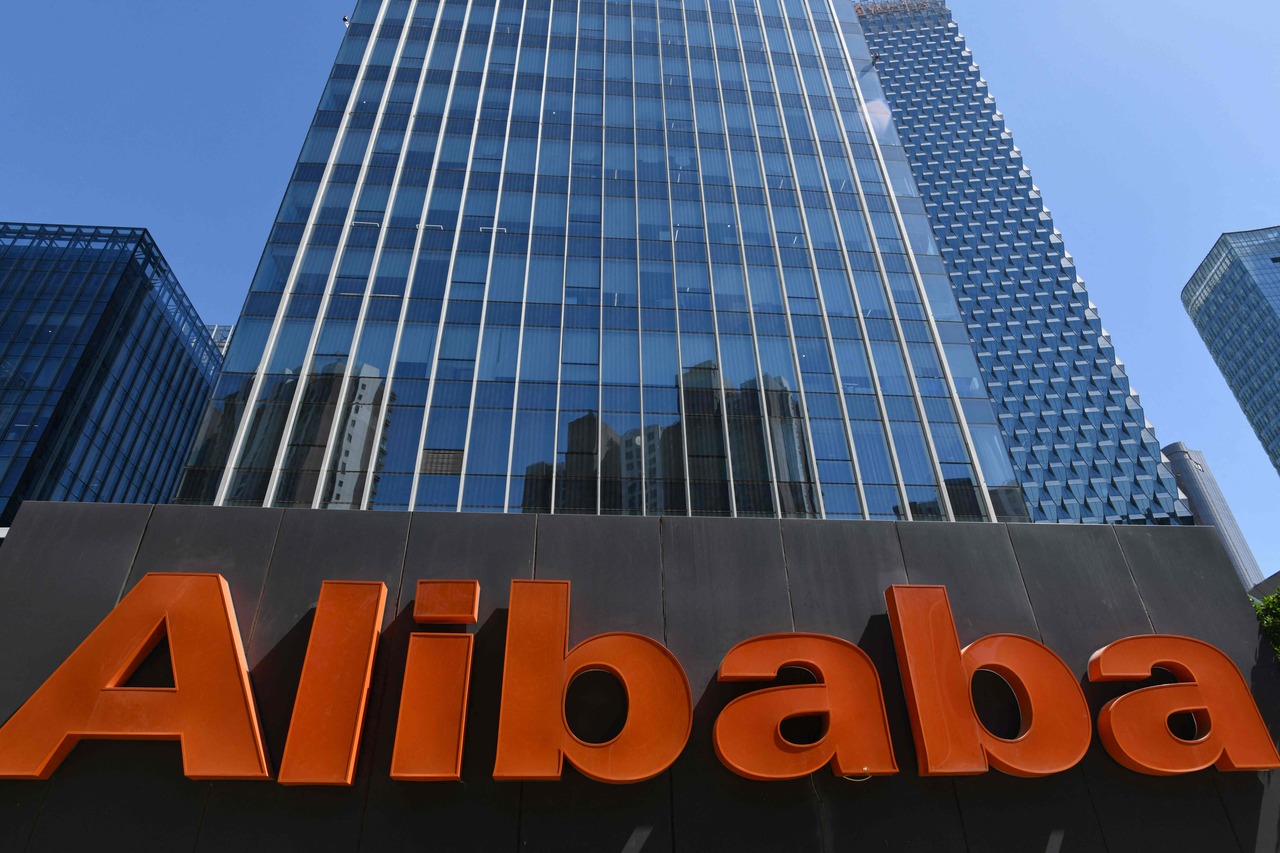Alibaba posts slowest revenue growth since going public as tech crackdown bites
Sign up now: Get ST's newsletters delivered to your inbox

Alibaba warned in November that revenue growth for the fiscal 2022 year would be 20 per cent to 23 per cent.
PHOTO: AFP
Follow topic:
HONG KONG (BLOOMBERG) - Alibaba Group Holding will focus on retaining users rather than pursuing the aggressive market share grab of years past, recalibrating its strategy after more than a year of relentless curbs on every facet of China's Internet sector.
Chief executive officer Daniel Zhang sketched out on Thursday (Feb 24) how China's e-commerce leader will now prioritise user retention over acquisition - a significant shift for a company that achieved massive scale by vanquishing rivals like eBay and fought rivals in arenas from media to the cloud and commerce.
On Thursday, it reported the slowest revenue growth since it went public, underscoring how Beijing's crackdown on its technology sector is taking a financial toll.
The about-face underscores a growing realisation of the speed with which up-and-coming competitors from ByteDance to Pinduoduo are drawing users from traditional leaders Alibaba and JD.com, even as the Chinese economy struggles to recover during punishing Covid-19-zero lockdowns. Alibaba's shares fell more than 6 per cent in pre-market trading in New York.
"We have substantively captured all consumers with purchasing power in China," Mr Zhang told analysts on a conference call. He added that the firm's focus will "shift from new user acquisition to user retention" and growth revenue per user.
Once the most valuable company in China, Alibaba has struggled since Beijing launched a sweeping crackdown on the private sector more than a year ago.
The Chinese government forced Alibaba's finance affiliate, Ant Group, to call off what would have been the world's largest initial public offering in 2020, and then instituted a series of reforms that has undercut Alibaba's business model.
Beijing's crackdown is not over. Bloomberg News reported this week that the Chinese authorities are asking the nation's biggest state-owned firms and banks to start a fresh round of checks on their financial exposure and other links to Ant Group, according to people familiar with the matter.
In response, the company has turned increasingly outward - Lazada, Alibaba's South-east Asian arm, Trendyol in Turkey and Daraz around South Asia have evolved into important units of the company. Alibaba outlined a long-term goal of quintupling Lazada's gross merchandise value, the sum of transactions across its platforms, to US$100 billion (S$135.5 billion).
But market volatility has eclipsed those efforts. The company recently called off a fund-raising plan for Lazada after failing to secure an envisioned valuation. Asked about the prospects to raise funds and perhaps spin off the Lazada business in future, Mr Zhang said he is open to such moves for multiple businesses.
Alibaba's sales rose 9.7 per cent for the three months ended December, far below the over 40 per cent growth that was common before the government scrutiny began.
Net income tumbled 74 per cent to 20.4 billion yuan (S$4.4 billion) after the company took a big hit from losses in its global investment portfolio. Annual active consumers rose 43 million to a better-than-expected 1.28 billion, while cloud revenue jumped a slower-than-anticipated 20 per cent.
Alibaba warned in November that revenue growth for fiscal year 2022 would be 20 per cent to 23 per cent, compared with the 27 per cent that analysts had been projecting. Its valuation has dropped from a high of about US$860 billion to US$291 billion. In a sign of the times, liquor maker Kweichow Moutai is now worth more than Alibaba.
"We remain focused on building long-term capabilities centred around customer value creation despite the resurgence of Covid-19, China's macroeconomy slowdown and increasing competition," Mr Zhang said.

